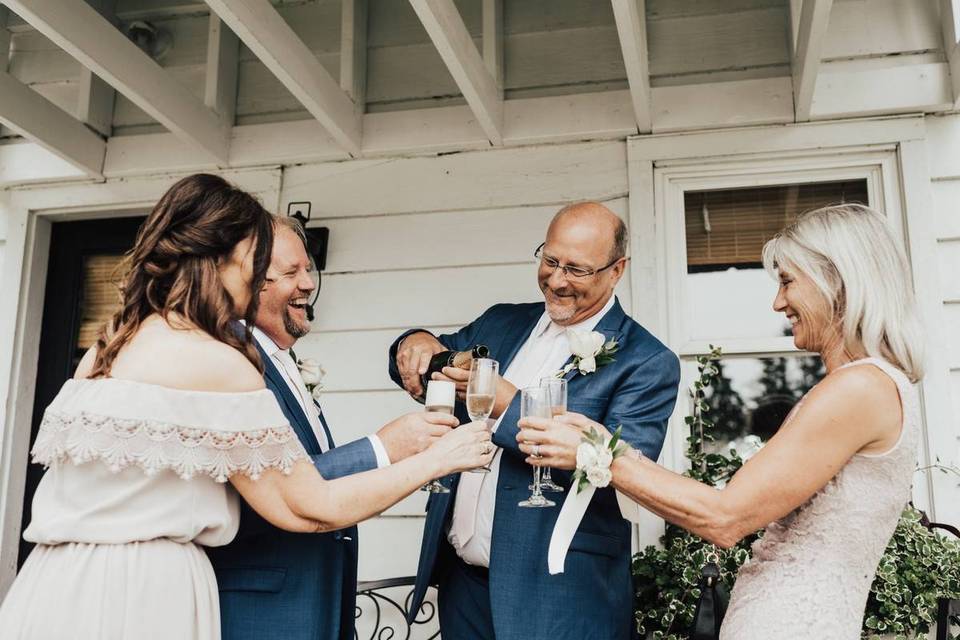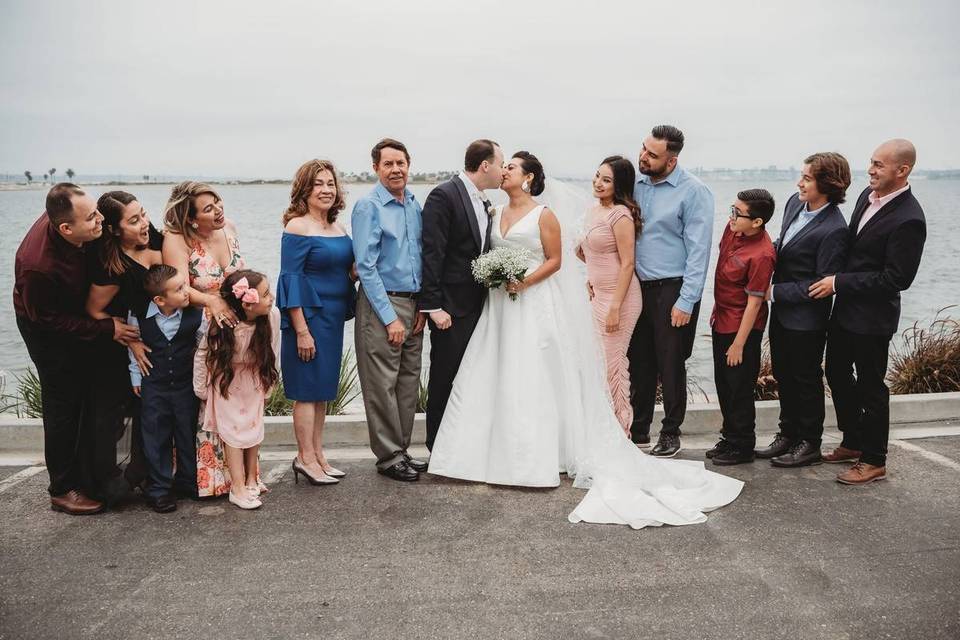Is It the Parents' Responsibility to Pay for Their Child’s Wedding?
Experts, couples, and families weigh in on if parents are still on the hook for paying for their kid's wedding. Is it an outdated tradition or still appropriate?

The topic of finances can be intimidating, and no couple wants it infringing on their big day. But sooner rather than later, couples and extended families are faced with answering the questions, "Who’s paying for the wedding?" and “Should the parents pay for the wedding?” But in a world that is ever-changing, are these wedding traditions to leave in the past? We had industry experts, parents, and couples weigh in.
Who traditionally pays for a wedding?
It should come as no shock that weddings are expensive. In 2020, a WeddingWire study reported that the national cost hovers around $30,000. And that's before talks of a honeymoon.
Park Cities Baptist Church in the Dallas-Fort Worth area, gave insight into her experience in recent years. "Parents have an expectation on [their child's] special day, regardless of who is fitting the bill. And I've seen it become a burden on the bride, an emotional struggle that ultimately puts a strain on the planning process."
However, should the couple decide that a sponsored wedding from mom and dad is the way to go, Scott offers some advice. "Honor the gift that they are giving. And have conversations early and often." Echoing a similar sentiment was Marcy, a recent bride in Indianapolis. She said that though she doesn't believe it is a parent's responsibility to help pay for a wedding, should parents insist on helping finance the wedding, it would be wise to "set a dollar-amount gift. A blank check is not the way to go."
How is parental financial support evolving?
As with most aspects related to culture, we've seen traditions and rituals change with weddings. With the evolution of the modern family, compounded by the liberation of both women and LBGTQIA+ communities, there has been anecdotally less responsibility put exclusively on the bride's family. Instead, both families and even the soon-to-be newlyweds step-up to help fund the wedding.
Seattle wedding planner Alex Hamilton of Willow & Ivy Events sees a welcome shift in her industry. "Not all couples are made up of a bride and a groom, so that throws [some] old school tradition right out the window [from the beginning]. A majority of our clients choose to pay for their weddings themselves with some assistance from family members if they are comfortable with it," Hamilton explains.
"Couples are evolving and changing. I rarely see the bride's parents pay for the wedding and the groom's family pay for the rehearsal dinner' anymore. [...] I see a mom paying for attire or a dad paying for alcohol and food more often than one family paying for everything."
Christian Scott also observes the fact that many are getting married later in life. "We're seeing people marry at an older age, during a phase of life where they have the means to pay for their wedding and don't want to put that strain on their parents."
The verdict is in: it's no longer customary for a bride's parents to foot the wedding bill. But that doesn't mean there aren't significant budgeting conversations to be had.
How to plan ahead and save
Regardless of who is paying for the wedding, financial intimacy and openness throughout the process are key. Hamilton advises couples to "Be honest. With yourself and with your partner. You need to sit down and work on a budget that everyone is comfortable with. [...] There are tons of ways to get the wedding of your dreams without causing financial strife.
At Willow & Ivy Events, Hamilton's team budgets in a buffer savings account or a "pot of money" to ensure there is wiggle room to avoid messy financial conversations. "Both parties need to come to an agreement before moving forward with the booking of vendors, in my opinion. Otherwise, it creates issues or arguments down the line."
With caution and consideration being a theme, Christian Scott also advised couples to be mindful of parents' financial health. "We're living in a time where some parents are retiring without funds. It's important to be thoughtful about everyone's future." Scott also expresses the benefits of talking about money more openly, even outside of the context of wedding planning. "Make [money] a part of the normal conversation as soon as possible, especially as a soon-to-be-married couple."





